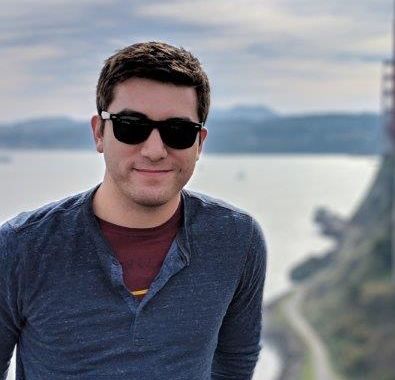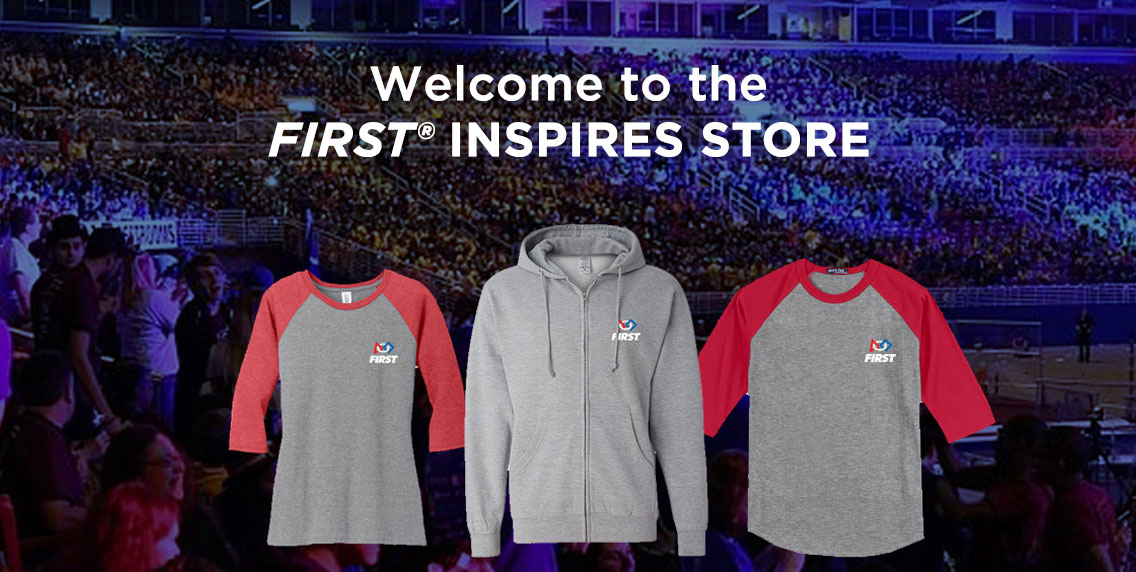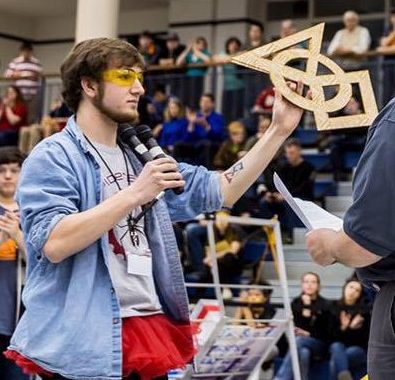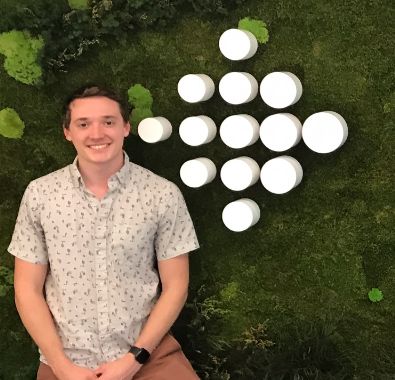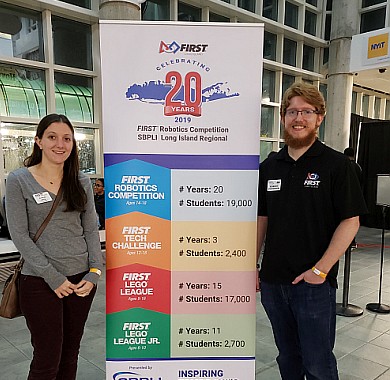This International Women’s Day, we’re sharing a conversation between FIRST President Don Bossi and FIRST Canada VP of Partnerships Kim Cooper, who recently published a book about creating a more welcoming, diverse and inclusive environment for women in STEM: Girls in Science: Voices for Change.
FIRST® alum Joe Polin was part of FIRST® Robotics Competition Team 1308 in Cleveland, Ohio—the start, he says, of an education and career path that has landed him at Tesla, working for its Computer Vision and AI arm. Along the way, he’s learned a few lessons about robotics, risk-taking, mentoring, and taking pride in what you build. His advice for students? “Learn to code. Regardless of your discipline, the ability to automate simple tasks and understand software (at least at a high level) will be invaluable.”
What did you do after becoming a FIRST alum?
After graduating high school in 2010, I enrolled in mechanical engineering at the University of Pennsylvania. From day 1, I realized that FIRST had given me two huge advantages: I had a good idea of what I wanted to do, and I already had experience doing it. Even in my first semester, I found myself well ahead of my peers when it came to mechanical design and “rapid fabrication.” I managed to ride this advantage into a research assistant position in one of the university’s premiere robotics labs, centered around highly agile aerial robots. This ultimately became a stepping stone to a master’s degree at Stanford University, where I switched gears and concentrated in computer science.
Along the way, I’ve worked on all kinds of robots, including those that play (mini) hockey, help perform surgery, help rehabilitate stroke patients, and run Amazon warehouses. Currently, I serve on the Computer Vision and AI arm of Tesla’s self-driving team. In retrospect, every stage of my education and career has paved the way for something new and even more exciting. If you trace back far enough, it all started with FIRST, and that's one of the reasons I continue to donate both my time and money.
What advice do you have for current FIRST participants?
My most concrete advice is: Learn to code. Regardless of your discipline, the ability to automate simple tasks and understand software (at least at a high level) will be invaluable. And if you happen to enjoy it, software engineering is arguably the hottest job market today. More generally, find excitement and take pride in what you build. As an engineer, your claim to fame will not be GPA, awards, or degrees: it will be what you have built.
How has your FIRST experience impacted your post-graduation life?
FIRST taught me a slew of technical skills but included a few less concrete lessons as well. Our sole advisor, Bob Ward, was an incredible mentor. He had a wealth of experience building, and as a long-tenured AP Physics teacher, he knew how to communicate tricky concepts. Perhaps his best gift to us, however, was letting us build what we wanted to build. From his perspective, I’m sure our ideas seemed overly ambitious and fantastic (and they usually were). But instead of overruling or criticizing us, he was unceasingly supportive and helpful. He let it be our team, our robot and let us learn our own (often painful) lessons along the way. When I find myself in similar mentorship roles today, whether at work or otherwise, I do my best to channel my inner-Bob.
You’ve continued to be involved with FIRST as an alum; what have you been up to?
FIRST’s impact on my life is so clear and obvious that I have never had to ask, “How can I help pave the way for others?” Throughout undergrad, I helped coordinate FIRST® LEGO® League competitions, once spending weeks building the playing fields by myself. I continue to seek opportunities to give to and promote FIRST, and encourage every student I meet to become involved.
What is your favorite FIRST related memory?
During my freshman year, we made a gamble: Despite having less than two months to design and build our robot, we sent away for a custom-designed frame that would take weeks to come in. With our bold, but carefully crafted schedule, we should finish on time—that is, IF everything went according to plan. It did not. As it turns out, we had accidentally specified stainless steel instead of aluminum, and this put the frame—by itself—over the robot’s weight limit. During the ensuing weeks, we burned through dozens of hole-saw blades as we swiss-cheesed it down to the minimal structure and built the rest of the robot out of wood. It performed about as well as it looked.
Three years later, as a senior, I pushed for a more hedged approach. We carefully designed the robot in CAD, as before, but ordered modular aluminum extrusions that could be modified on the fly. This allowed for more iteration and testing for both hardware and software. That year, we reached the finals, and had a pretty sweet-looking robot to boot.
Visit firstinspires.org/alumni for more FIRST Alumni spotlights. Share your story for a chance to be featured.
